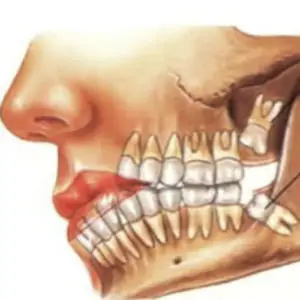Anthropologists believe that wisdom teeth or the third set of molars were the evolutionary answer to our ancestors early diet of coarse , rough food which required more chewing and resulting in excess wearing of teeth. However the modern diet has made the need for wisdom teeth almost irrelevant.
Now let’s answer the most commonly asked questions by patients with regards to wisdom teeth.
Does everybody get wisdom teeth?
No, because mouths are too small for these four additional molars , an extraction procedure immediately after they surface may be necessary. However some people have congenitally missing teeth a condition called oligodontia. It may be a single tooth that is missing or all the four. Some wisdom teeth never erupt although they exist. These are referred to as impacted wisdom teeth.
Can wisdom teeth erupt at any age?
Generally wisdom teeth erupts between the ages of 17 to 25 years but this not a hard and fast rule. There have been cases when the wisdom teeth have erupted at 45 yrs of age and as late as even 65 years. This difference and pattern of eruption is related to the genes.
How do you know that your wisdom tooth is coming in?
Generally the tooth pain starts in the back end of the upper and lower jaw. The pain may radiate to the nearest tooth but maximum pain persists at and beyond the second molar region. There may be jaw stiffness. It may also be pain or irritation from a tooth coming in at an awkward angle and rubbing against your cheek and tongue. And also correlating with the age also confirms that it is the wisdom tooth.
What are the Reasons for wisdom teeth extraction
According to the American Dental Association, wisdom teeth removal may be necessary if you experience changes in the area of those teeth, such as
- Pain
- Pericoronitis : It is the inflammation of gums around an erupting tooth most commonly the wisdom tooth. If it is severe, wisdom teeth extraction is advised.
- Cysts (fluid-filled sacs)
- Tumors
- Damage to nearby teeth
- Gum disease
- Extensive tooth decay
- Impacted wisdom tooth: When the wisdom tooth is embedded in the jaw bone or partially erupted. Partial eruption of the wisdom teeth allows an opening for bacteria to enter around the tooth and cause an infection, which results in pain, swelling, jaw stiffness, and general illness. Partially erupted teeth are also more prone to tooth decay and gum disease because their hard-to-reach location and awkward positioning makes brushing and flossing difficult.
- Unable to maintain dental hygiene : Inaccessibility of the toothbrush till the wisdom teeth hence resulting in entrapment of bits of food and bacteria in the pockets between the partially erupted tooth and gums causing infection and gum disease ultimately leading to pain.
The decision to remove wisdom teeth isn’t always the same. Talk to your dentist or an oral surgeon about the position and health of your wisdom teeth and decide what is best for your situation.

